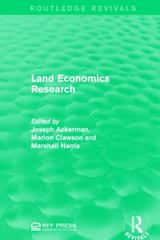Part III: Risk and Insurance Note: Where necessary, round to two decimal places for display of nal answers ONLY (this means that you should NOT round in the middle of your process of calculating!). Kelly is a farmer with zero wealth. She can either plant rice or cotton. If she plants cotton, Kelly earns an income of 31800 if the weather is GOOD, and $0 if the weather is BAD. If she plants iice, Kelly will earn an income of $1000 under both GOOD and BAD weather. The probability of GOOD weather is 0.7. The probability of BAD weather is 0.3. Kelly' s utility function is 11(6) = 3316, where C is the value of consumption. Use this information to ll Out the following table for Kelly. Table 1 Certainty Equivalent Risk Premium 3.. What type of risk preferences does Kelly have? Justify your answer. b. Which crop will Kelly choose to plant? Justify your answer. Kelly's neighbor Anderson is a farmer who faces the same choice as Kelly does, but he has wealth of $300 which he will add to his income from farming in his consumption. Coincident-ally, he has the same utility function as Kelly: 11(6) = 3'16, where C is the value of consumption Fill out the following table for Anderson. Table 2 Anderson's. . . Plant Rice Plant Cotton Expected Value of Income Expected Utility Certainty Equivalent Risk Premium c. What type of risk preferences does Anderson have? Justify your answer. (1. Which crop will Anderson choose to plant? Justify your answer. 6. What is the effect of Anderson's wealth on his crop choice? A new cotton mill has opened in a nearby town, and they have decided to offer an insurance contract to cotton farmers in the area. At the beginning of the season, farmers pay a premium of $540. If the weather is GOOD, the insurance Will pay nothing to the farmer. If the weather is BAD, the insurance will pay an indemnity payment of $1800 to the farmer. Assume the cotton mill's insurance agents have perfect information about the fanner's activity choice (that is, they can write and enforce a contract that requires the farmer to choose cotton). f. What is the cotton mill's expected prot from this contract? Show your work by setting up the calculation. g. What are the expected utilities for planting cotton with insurance for Kelly and Anderson? Show your work by setting up the calculations. h. If Kelly is now choosing between planting cotton without insurance, planting rice, and planting cotton with insurance, What will she choose? Justify your answer. i. If Anderson is now choosing between planting cotton without insurance, planting rice, and planting cotton with insurance, What will he choose? Justify your










